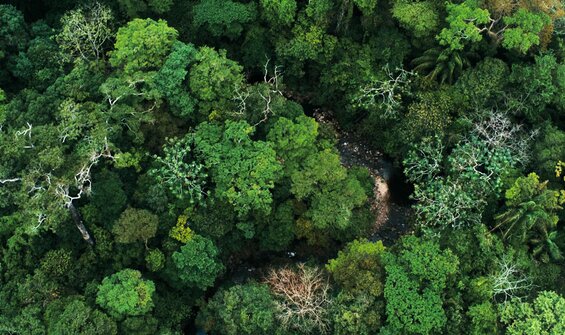
For financial institutions
Assess and manage deforestation and human rights risks related to soft commodities
The Accountability Framework guides financial institutions on how to establish policies for responsible lending and investment in the food, agribusiness, and forestry sectors. It also helps financial institutions to screen and engage their portfolios to fulfil these policies.
1. Establish responsible lending and investment policies
Use the Accountability Framework to develop sound policies and practices, in line with international norms, to avoid deforestation, ecosystem conversion, and human rights impacts from your loans and investments. Several Accountability Framework-aligned tools support this process:
- The Deforestation-Free Finance Roadmap provides step-by-step recommendations to assess risk, set policies, engage clients/holdings, and disclose progress to eliminate financing of commodity-driven deforestation, ecosystem conversion and associated human rights abuses. Building from this Roadmap, tailored guidance for pension funds, detailed guidance on due diligence, and an investment mandate for private investors is now also available.
- WWF offers a practical step-by-step guide for financial institutions to address deforestation and ecosystem conversion risks in alignment with the Accountability Framework. The guide provides details on the risks financial institutions face. It also presents case studies and nature-positive finance opportunities to drive positive environmental impact.
2. Assess environmental and social risk and performance in your portfolio
Whether or not your institution has established policies and criteria related to deforestation, conversion, and human rights, it is essential to understand exposure and risk related to these topics. Accountability Framework-aligned tools and disclosures can help your institution to assess and manage such risks across your portfolio:
- Many widely used reporting standards and platforms that address environmental and human rights issues linked to soft commodities are well aligned with the Accountability Framework. These include CDP’s forests questionnaire, the Forest 500 assessment and the GRI Agriculture, Fishing, and Aquaculture Sector Standard.
- Ceres’ Investor Guide to Deforestation and Climate Change explains how investors might be exposed to deforestation and related climate risks in their portfolios. It guides investors on how to analyse their own risk exposure and engage companies in their portfolios to mitigate these risks.
- Ceres’ Engage the Chain guidance highlights the environmental and social risks and impacts of eight commonly sourced agricultural commodities: beef, corn, dairy, fibre-based packaging, palm oil, soybeans, sugarcane, and wheat. It provides information on major companies sourcing these commodities and identifies actions that investors can take to reduce exposure to agricultural supply chain risks.
By using these Framework-aligned data sources and approaches to assess companies in your portfolio, your institution can integrate best available information and analysis on deforestation and associated risks into your decision-making on lending and investment. Additional Accountability Framework-aligned resources for financial institutions will be added here as they become available.








